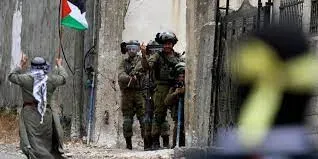Introduction
The Israel-Palestine conflict, a decades-old dispute, has been a source of immense human suffering and geopolitical tension. However, the pursuit of peace remains a fundamental goal for the region and the international community. In this unique article, we will explore the challenges and hopes associated with peace prospects in the Israel-Palestine conflict, examining the complex dynamics, historical context, and potential pathways toward a peaceful resolution.
Historical Background
The Israel-Palestine conflict traces its roots to the late 19th century, with the arrival of Jewish immigrants in Ottoman-controlled Palestine. Key events that have shaped this enduring dispute include:
Balfour Declaration (1917):
The British government expressed support for the establishment of a "national home for the Jewish people" in Palestine.
1948 Arab-Israeli War:
The war resulted in the creation of the State of Israel and the displacement of hundreds of thousands of Palestinians.
Six-Day War (1967):
Israel occupied the West Bank, Gaza Strip, and East Jerusalem, which led to continued Palestinian resistance.
Peace Accords:
Various peace agreements, such as the Oslo Accords (1993), have been signed but have not resulted in a comprehensive, lasting resolution.
Challenges to Peace
The path to peace in the Israel-Palestine conflict is riddled with obstacles:
Territorial Disputes:
Resolving the issue of borders and land ownership is a complex and contentious matter.
Status of Jerusalem:
The status of Jerusalem, claimed by both Israel and Palestine as their capital, is a highly sensitive and divisive issue.
Refugee Issue:
Addressing the rights and return of Palestinian refugees is a deeply rooted challenge.
Security Concerns:
Both sides have legitimate security concerns, and building trust to address these concerns remains a substantial obstacle.
Hopes for Peace
Despite the daunting challenges, there are reasons for hope:
Two-State Solution:
The two-state solution, with both Israel and Palestine living side by side with defined borders, remains a widely supported framework for peace.
International Mediation:
International organizations and countries, including the United Nations, have played a role in mediating peace talks.
People-to-People Initiatives:
Grassroots movements and people-to-people initiatives aim to bridge divides and foster understanding between Israelis and Palestinians.
Regional Cooperation:
The potential for broader regional cooperation could create a conducive environment for peace efforts.
Conclusion
The pursuit of peace in the Israel-Palestine conflict is a challenging endeavor, but it is one with profound implications for the Middle East and the international community. While the obstacles to peace are significant, the hope for a resolution that ensures security, justice, and prosperity for both Israelis and Palestinians remains a powerful motivator. Sustained international attention, cooperation, and a commitment to dialogue are vital for achieving a lasting and just peace in the region.
FAQs (Frequently Asked Questions)
1. What is the two-state solution?
The two-state solution envisions the establishment of two separate, independent states, Israel and Palestine, each with defined borders and sovereignty.
2. How can international mediation help in the peace process?
International mediation can provide a neutral forum for negotiations, offer incentives and guarantees, and help bridge gaps between the parties.
3. What are some examples of people-to-people initiatives in the Israel-Palestine conflict?
People-to-people initiatives include joint Israeli-Palestinian projects, cultural exchanges, and dialogue forums that aim to build mutual understanding and trust.
4. What role do neighboring countries play in peace prospects?
Neighboring countries can influence peace prospects by supporting or impeding negotiations, and they may play a role in regional cooperation efforts that can create a more conducive environment for peace.





